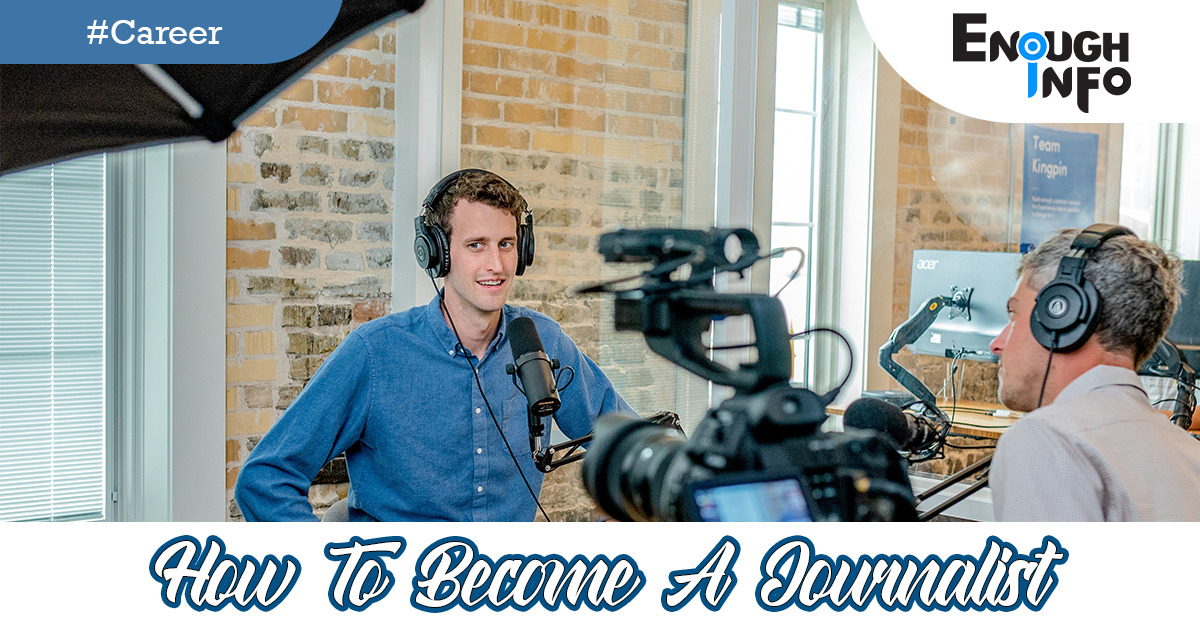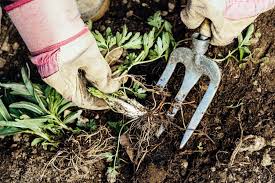How To Become A Journalist(The Ultimate Guide)

How To Become A Journalist: Journalism is crucial to society yet very competitive. If you want to succeed in journalism, you’ll work hard. With hard work and optimism, anyone can become a journalist. Journalists must inform. Before covering breaking news, politics, or the local team, a journalist must build credibility. If you want to be a journalist, you need to know what a newsroom requires. EnoughInfo.com

Read Also: How To Become A TV Reporter
This article discusses journalism career requirements and how to start.
What does a journalist do?
A journalist provides impartial reporting on events in the globe. There are several positions available in each specialty of journalism, which spans almost all facets of the contemporary world. Opportunities for print, audio, and video reporting are available in the journalism career paths. How Long Does It Take To Get A Refund From Amazon
Journalists are required to undertake research on the stories they are writing about, which may include reviewing documents, speaking with sources, and submitting requests for documents from the people or organizations they are writing about.
Some journalists cover their assigned topics more successfully by working in embedded positions and going abroad.
FAQs & Answers on How To Become A Journalist
1. What should I be aware of before thinking about a career in journalism?
Journalism offers many benefits, but you should consider its drawbacks before pursuing it. If you need regular hours, journalism may be tough, especially for entry-level reporters who often get unfavourable assignments that require long or erratic hours. Web and video material are replacing print media in journalism. Thus, employee positions have decreased and freelance work has increased.
2. What education do I need to pursue a career in journalism?
A bachelor’s degree in journalism, communications, English, public relations, or a closely related discipline is often required to work as a journalist. Through internships or specialized courses, you can also get useful experience. You also need to be skilled with certain digital media tools and approaches. How To Become An Engineer(The Ultimate Guide)
3. What kind of journalist should I aspire to be?
Writing about the various subjects that interest you is the simplest method to choose what kind of journalist you want to be. You should specialize in journalism for the subject that interests you the most and that comes naturally to you.
Read Also: Telecommunications Specialist Job Description
How to become a journalist
If you’re interested in becoming a professional journalist, follow these steps:
1. Pursue a bachelor’s degree
For the majority of media companies, a bachelor’s degree is the required educational level. A degree in mass communication or journalism is desirable. Graduates with similar degrees in public relations or English, however, could be taken into consideration for opportunities provided they have relevant experience to back it up.
You will attend classes to acquire a journalism degree that address essential journalistic skills including media ethics, research, interviewing, and producing persuasive content. Additionally, you will study about the many forms of contemporary journalism, such as print, web, and video. How to Declutter And Organize Your Home
2. Work for the school media
An effective way to obtain experience before starting a job is through college. Even when looking for an entry-level position, it is essential to have as much experience as you can in journalism to showcase your skills.If you are certain of the medium you want to work in, you should start looking for jobs in that industry while you are still in school, maybe by joining the school newspaper or radio station.
Working in student media is a good way to start assembling a portfolio of the articles you are most pleased of and those you believe best demonstrate your reporting skills. You will be exposed to a wide range of topics during your study, and you may further complement those possibilities by joining student media and testing out various jobs, if you are unclear of the style of reporting or area of expertise you like. How To Play Chess Like A Pro
3. Create a blog
Creating your own blog is another way to start accumulating experience for your resume. You have complete creative control over the topic, structure, and tone of your own blog posts.
Read Also: How To Start A Blog For Free (A Beginners Guide)
If you are familiar with the industry you want to work in, concentrate your blog posts on covering that subject.
An prospective sports journalist might start a blog where they provide weekly NFL game analysis, while an aspiring political broadcaster would do better to start a blog that promotes videos from their YouTube channel where they discuss current political events.
You may be presented with many more professional options and even have the opportunity to directly commercialize your blog if you are successful in growing a readership. Even if there isn’t much traffic to your blog, you are still honing your talents and expanding your employment options. By consistently producing content, you are providing yourself numerous opportunity to produce work that you would be proud to include in your portfolio as well as prepare yourself for the job you will be performing in your future.
4. Put together a portfolio
Although many aspiring authors mistakenly think that a personal blog and a portfolio are interchangeable, you should really make a separate portfolio to showcase your greatest work. Pick and choose your greatest work to make a polished portfolio when applying for a job that requires you to submit an internet link since you don’t want to rely on the hiring manager reading the best blog posts on your site. A portfolio also makes it simpler to locate the work you wish to submit in printed submissions.
With a focus on just including the work you are most proud of, your portfolio should be carefully chosen. Create distinct sections in your portfolio for the many writing genres you have done if you have written on a variety of themes in a variety of styles or tones. This can facilitate finding the examples of work that are most applicable to a potential employer’s media operation.
The employer will probably ask for sample work in addition to your resume when you apply for journalism positions or other writing positions where your journalistic talents may be put to use. So that potential employers may simply view your portfolio, provide a link to it in the resume’s contact information. The greatest method to come across favorably and demonstrate your journalistic skill is with a well-made portfolio. How To Create A DIY Home Decor
5. Scour for an internship
You will have the option to pursue internships as a senior. organizations of the media. This is the most effective strategy to network in the sector and get experience. When applying for entry-level roles with media companies, work done in a professional atmosphere is more noticeable. Personal blogs and volunteer work for educational institutions both offer important experience and clips.
A prospective employer can see that you have not only learnt the fundamentals of journalism but have also used them in a professional newsroom with strict deadlines when they see internship experience on your CV. Always strive to place internship-related work that was well-received by your employers in a prominent location on your web portfolio.
Read Also: How to write a resume(The Ultimate Guide)
6. Write a resume
A CV is less significant when looking for a job in journalism than it is in many other professions since your writing samples provide more solid evidence of your abilities. You should still still make a professional CV.
Include work you’ve done for the journalistic organizations at your school in your experience area, along with any internships and professional experience you’ve had. Be sure to mention any accolades you obtained for your reporting, such as articles that won awards or were published in media outside of your immediate region, in the experience portion of your resume under the appropriate job or in an accomplishments and awards section. How To Write A Cover Letter For A Job Application
7. Submit to job postings
It’s crucial to tailor your sample work and CV when applying for journalism jobs so that they closely fit the job description. When feasible, concentrate your job history and your chosen writing examples on the industry relevant to the role.
Choose your finest writing that fits the style and tone of the media firm you are applying to if you have no prior experience writing about the topic of the job post. Your work and CV will make a greater impact on the hiring manager or editor evaluating your submissions the more immediately applicable they are.
8. Seek out freelancing opportunities
There are numerous options to work as a freelance journalist while looking for a full-time job because the media industry has shifted more toward freelance employment in recent years. How To Unlock A Car Door With Power Locks
Having a story concept that you can sell to media businesses is the simplest method to start a freelance collaboration. As you start to have your freelancing work published, it not only makes it simpler to get more freelance work—both with the same client and with others—but it also adds to your portfolio and helps you network in the hopes of landing a full-time employment.
Read Also: How To Write A Cover Letter For A Job Application
Conclusion
To be a successful journalist, you need to have strong writing and editing skills. You also need to be knowledgeable about the topics you are covering. Having good communication skills and an awareness of ethical practices will help you become the best journalist possible.
How To Develop A Growth Mindset(The Ultimate Guide)
15 Ways to Establish Rapport (Comprehensive Guide 2023)
How To Create A Podcast (All you need to Know)




